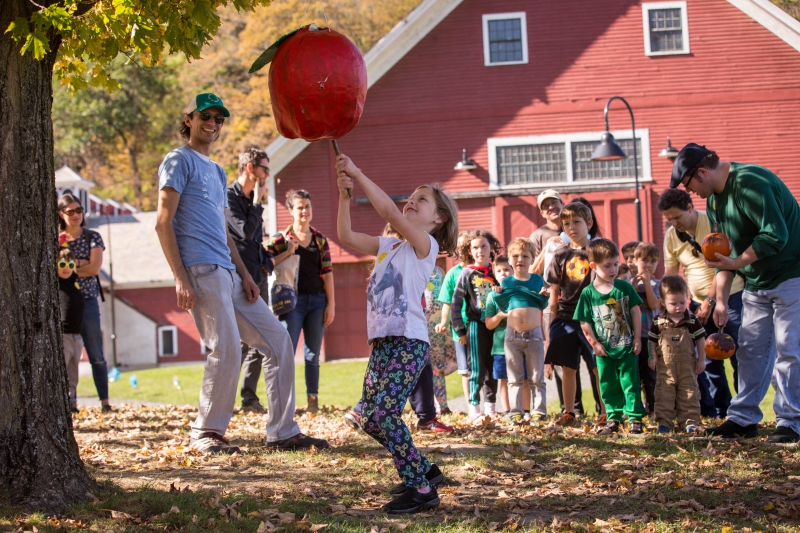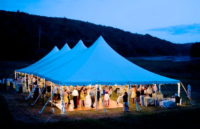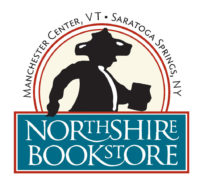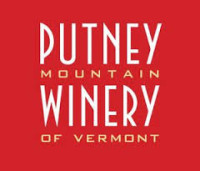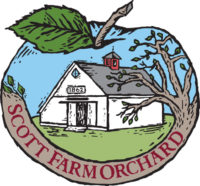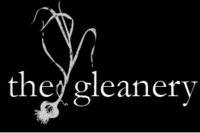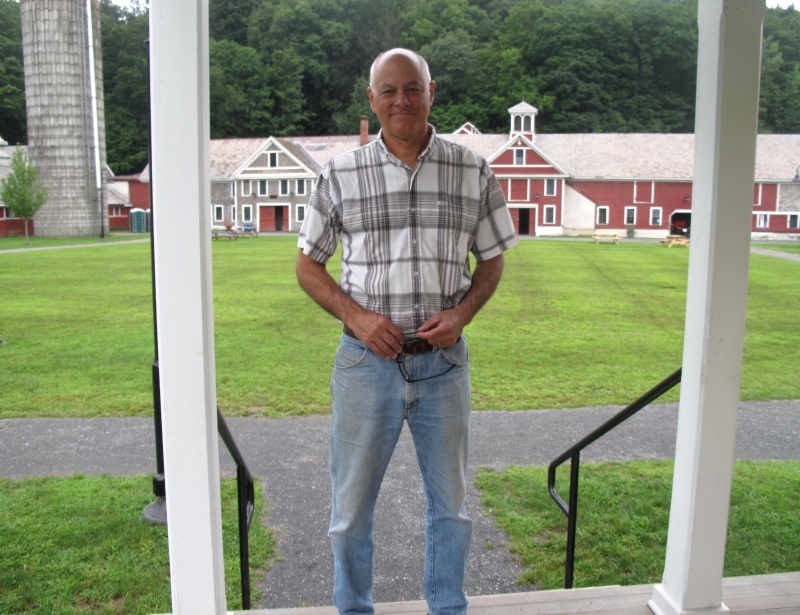
As president of Retreat Farm, Ltd., the nonprofit organization that has taken over operations of the 500-acre campus, Buzz Schmidt has overseen the rebirth of a historic agricultural and community resource.
By Katherine P. Cox
Retreat Farm, the historic farm within walking distance of downtown Brattleboro, was hopping this summer, with hundreds of people attending Thursday night Food Truck Roundups in Farmhouse Square, featuring food and beer, music, and games. Goat Yoga sessions with the farm’s baby goats were sold out. Kids and parents got down and dirty during International Mud Day, where they were encouraged to jump in mud puddles and make mud pies.
The arts weren’t forgotten as Farm to Ballet performed in the square, celebrating the farm culture of Vermont. Throughout the year families and local schoolchildren have been visiting the Children’s Farm and Forest program, a hands-on educational program that in the past year has brought more than 12,000 people to the renovated Calf Barn indoor play area and learning center, and works with nearly 40 schools and educational groups within an hour of Brattleboro.
It’s a remarkable transformation from the farm (previously operated by the Brattleboro Retreat), which had fallen into disuse and disrepair. It had been a proud part of the Retreat for 180 years until the Retreat could no longer afford to keep it going and looked to put the 500-acre property on the market in 2014. That’s when the Windham Foundation, alarmed that the land would be sold for development, stepped in to save it.
“It’s an obvious jewel of a property and groups around state were concerned that if it were put on the open market it would go for development and the beautiful architecture of the site would be lost, as would the working landscape,” says Liz Bankowski, president of Windham Foundation. “So the Foundation gave the Retreat $1 million to secure the property. There were other funds raised in the community to help but it was the Foundation that secured the survival of the property.”
“It was a real rescue operation,” says Paul Bruhn, executive director of The Preservation Trust of Vermont. But the Foundation was stymied, he says.
Bankowski explains, “It was apparent that it was an incredible piece of property with tremendous capital needs. We were not in a position to make the investments or develop the property. We had our hands full with a 100-year-old inn in Grafton and a cheese company in Brattleboro [The Grafton Cheese Factory]. We continued to be the stewards of it and maintain it, but it was apparent that we had to find a better future for it.”
They found the person who would take the farm into the future when Bankowski met Buzz Schmidt, 66, who had deep roots in the region and had just moved back to the area in 2012.
“I had met Buzz and was recruiting him to become a trustee of the Foundation. I was aware of his credentials, his roots in the area, and his deep interest in historic preservation, rural life and small towns, working landscapes, and all the things we care about. I wanted him to become the lead person in thinking about a future for the farm and he came back and told me he was so interested in the project that he would take it on as a venture and create a new non-profit to continue the stewardship of the farm,” Bankowski says.
It was a natural fit. Schmidt has an extensive background in public service and the non-profit sector. He was a legislative assistant to Rep. Jim Jeffords in his first congressional term in 1975 and is chairman of the national Heron Foundation, on the boards of the Vermont Council on Rural Development and The Permanent Fund for Vermont’s Children, and is founder of Guidestar, a national database for nonprofits.
“I was coming back and still had some gas in the tank and wanted to get involved in rural development in Vermont,” he says.
After meeting with Bankowski, he drove by the farm to check it out. There was not much there, he says. “You had to look through a creative lens.”
Yet, he says, he fell in love with the farm and all the buildings.
“I grew up in a 250-year-old house in Guilford and always had an appreciation for historic preservation.”
He agreed to take it on, established The Retreat Farm Ltd. non-profit in 2015, then spent two years “liberating” the property. It was a complicated process with easement holders, the Vermont Land Trust, the Preservation Trust of Vermont, the Vermont Housing and Conservation Board, and the bank that held the loan on the cheese factory and all the buildings, he said. The factory was subdivided and Schmidt got to work on a 10-year master plan with the vision of restoring and repurposing the farm as a center for education, recreation, farming, markets, and events.
“We exist to restore historic buildings, the forest, the agricultural lands, the waters, the trails and preserve them,” Schmidt says, “and then repurpose them to be more valuable for the community. That’s why we’re here.”
The historic yellow farmhouse was restored and is the Farm’s administration building as well as where they hold some workshops and birthday parties. The Calf Barn was restored as well and is home to the children’s education program and the resident pigs, sheep, and goats. At the center of the complex is Farmhouse Square, which was rebuilt with new walks and landscaping and is the Farm’s premier outdoor event space. The Piggery was rehabilitated and features pastures, gardens and a nature trail. Work is underway to rehabilitate some of the 500-acre property, which includes trails, forests, wetlands and the Retreat Meadows Bay.
Down the road there are plans for more building restoration and programs, perhaps a community kitchen and a large indoor event space.
“We have some pretty high aspirations here,” Schmidt says. “This is a large, complex, land-connected place that we feel can be a significant, sustaining anchor institution for this region, providing young families with multiple opportunities to connect with, learn about, enjoy and become stewards of the Vermont landscape. It’s multi-faceted, family oriented, and we think it’s highly complementary to all the other activity that’s happening in the area.”
Schmidt’s true passion lies with the philosophical underpinnings of the enterprise.
“I’m really interested in how enterprises of all kinds contribute to the regenerative capital of a community. I think that’s the bottom line of what society should insist from all its enterprises. Its capital —human, natural, civic, financial—ultimately the health of a society rests on its stores of these kinds of capital. It’s that capital that allows enterprises to form. It sustains enterprises that create wealth. What we’re trying to do is develop enterprises here that contribute to these types of capital.”
Attracting families and young children is key to that. Katrina Razionale, director of business and platform development, says, “Being a young family, having young children can be so isolating and add on top of that there’s the isolation of rural communities.”
The Farm, she says, is a place where families can come and congregate, attend events, meet people, learn and enrich their lives. “The project is so big it’s really easy to get bogged down in how much there is to do and how long it will take to get to whatever the end is. But the moments that we’ve had to pause and look around us, such as when there are events and the place is full of people, we look around and go, This is really cool. It feels really good to see how much has happened.”
Bankowski agrees. “What they’ve been able to do is a good indicator of what they could do. I am so grateful Buzz was able to step forward and take it on. He has stabilized the property, it’s greatly enhanced and improved, it’s being put to good use, and it’s in a better position than it was. That corridor is incredibly important to Brattleboro and that’s the first piece of that Route 30 corridor. It’s well positioned—it’s a tourist corridor, there are other businesses up the road, it’s a major biking route, you have all the activity on the West River. That whole area continues to draw more and more visitors. It’s the gateway farm for Vermont and it’s within walking distance of the town, which I think is really unusual. It’s a distinctive part of the townscape.”
“We think it’s one of the nicest farm complexes in the state,” says Bruhn. “We’re very excited about it being repurposed and redeveloped. They’re doing really good work. Buzz is a really innovative, energetic, creative person so we have a lot of faith in him.”
“If there’s a single indicator of our success,” Schmidt says, “it’s how we have helped retain and attract young families to the area. Brattleboro is a pretty cool place, and I’m reminded of that all the time. I’m blown away by all the energy and ideas and intentionality that people have about how to build a better community. So I aspire to be one of them; to be part of that value proposition. We will help round out what already is a pretty cool value proposition for Brattleboro. We provide something that is intrinsically connected to the land—recreationally, educationally, spiritually, historically, commercially. It’s an important piece.”
For more information, visit http://www.retreatfarm.org.


